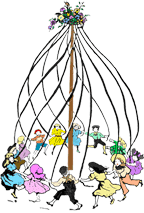Ann Finley Westover
Ann Finley Westover was born in Scotland, November 3, 1838. During those days polygamy was practiced by the pioneers, and years later Ann Finley became the second wife of Charles Westover, making her home in St. George. Circumstances being very poorly, people endured many hardships. Food was scarce, and at times they could not get enough to satisfy their hunger. Ann was the mother of five children, Emma, John, Will, Mary Ellen, and Edmund. While these conditions continued, Ann’s mother and father went to St. George with team and wagon and brought her and her little children to Mendon. Edmund was born after she came to Mendon. She was given a little log house north of her mother’s home, which is the rock house that stands south of the Post Office. Her husband did not come with her, but remained in St. George and some years later died there.
While Ann was living in the little log house, a very wonderful incident happened. She and her family had supper and their dishes were washed, and her work done for the night when a knock came to the door. In answering it she beheld an aged man standing there. She invited him in and prepared supper for him. He ate but very little, and while eating he told Ann that he had come to give her a blessing. He told her that her life had been a hard one; she had suffered much and had endured many hardships, but said that from now on times would change and she would receive the necessities of life, and have plenty. After he had finished eating and had gone away, she went to the door to see where he had gone, but no trace of him could be seen. Ann ran to her mother’s house and asked if she had had an aged man call on her, but she had not seen him. This man had disappeared and when his visit had been thought about, it was known as on of the three Nephites coming to her home. To Ann’s surprise this blessing was fulfilled sooner than she expected.
At this time Mr. Hampton was keeping a station and running a store south of the Bear River Bridge. Ann had been recommended to him. He came to get her to work for him, but she told him her baby was too young to leave and she could no go, but he told her to bring the baby, that was what they wanted her to do. He said that they would be so pleased to have the baby with them. Ann made arrangements for the other children to stay with her mother and accepted the job. It proved to be a good one, she received her salary, food for herself and her baby, and they also gave her clothes for the other children. She enjoyed the work very much, remaining there two years.
Some years later, her mother and father died, leaving her their house and some land. Her children were now old enough to work and she became independent.
In the early days, wool picking was a great fad; the young girls would go to each other’s homes and pick wool. When they went to Ann’s home they were very happy because she would read to them, and tell stories. She was a great reader and good storyteller.
Ann was a good woman. She became a member of the Relief Society, and was chosen as a Relief Society visiting teacher. She proved to be a very faithful and devoted one. She served for a number of years in that service. She was a teacher in Religion Class, and a very devoted one. Some of her pupils today remember the stories she told them. She also became the second Primary President of Mendon, Serving in this capacity for 37 years. Everyone loved her and she loved her work. Her work was known with much honor and good among the young people. While serving as President of the Mendon Primary, she and the children presented the Mendon Ward with an enlarged picture of Bishop Andrew Shumway, he being the first bishop of Mendon.
Besides raising her five children, she raised two of her grandchildren, Elmer and Dora Paul. At an old age she died at the home of her son Edmund on February 7, 1918, loved and honored by all.
![]()
